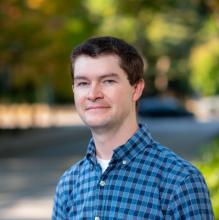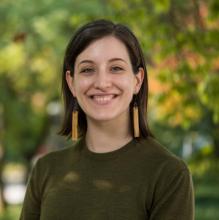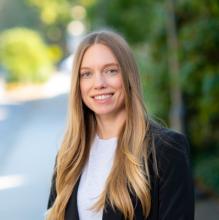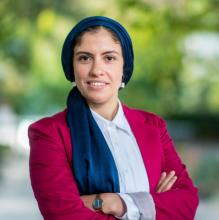My dissertation research examines how effective Participatory Planning Pedagogy is for environmental and sustainability education, specifically how it affects students’ action competence – that is the ability, the will, and the knowledge necessary to take present and future actions for sustainability.
Research Description
My dissertation research examines how effective Participatory Planning Pedagogy (PPP) is for environmental and sustainability education. The PPP curriculum is implemented through the Urban Explorers program within VSB grades 4-7 classrooms. I developed this program under the Child and Youth Friendly Communities projects as part of my community work at the Society for Children and Youth of BC (SCY). Urban Explorers and its curriculum builds upon decades of research and experience from the Child Friendly Cities and Growing Up in Cities initiatives taking place internationally. PPP follows a student-led rights-based approach combining the two goals of the United Nations Convention on the Rights of the Child: the right to participate in local decision-making and the right to a meaningful education. My research specifically examines how PPP affects students’ action competence – that is the ability, the will, and the knowledge necessary to take present and future actions for sustainability.
What does being a Public Scholar mean to you?
I have been a public scholar through-out the majority of my graduate studies. When I decided to continue with a graduate education I set the terms for myself to commit to only conducting community-based research with direct implementation and social impact as my priorities. There is so much great effort and research happening in academic settings that unfortunately never gets implemented – I wanted to avoid this.
In what ways do you think the PhD experience can be re-imagined with the Public Scholars Initiative?
Imagine how much social change we could achieve if all academic effort reached our communities directly! I think the Public Scholars Initiative is an excellent step towards this ideal – our communities need the good work of PhD students, and the Public Scholars initiative can support students in achieving this goal of direct community engagement and impact.
How do you envision connecting your PhD work with broader career possibilities?
My work falls under the broader Child Friendly Cities initiatives. Similar projects have been implemented internationally for many decades, yet thorough evaluation of both individual and societal impacts of these initiatives is still very limited – only few initiatives examine the effects of CFC work on children’s education, and also very few look at the long-term behavioural outcomes of this form of project-based real-world education. I see myself continuing this interdisciplinary work as a researcher, educator, and community planner, which means my career will continue as an ongoing collaboration between and within academic, community and governmental settings. I see a rising interest in Child Friendly City planning in BC’s municipal contexts and would like to keep supporting innovation and implementation in this area of social planning by developing and testing new methods of child and youth engagement.
How does your research engage with the larger community and social partners?
Urban Explorer’s PPP is delivered directly in local classrooms within the district (VSB), and the program is carried out in collaboration with various departments at the City of Vancouver as it engages children and youth in real-world ongoing planning projects undertaken by the city. Where possible, other community partners are also invited – for example we’ve had a Translink guest speaker hold Sustainable Transportation workshops for students, or an Architecture scholar hold abstract modelling sessions. Currently we are working toward decolonizing the curriculum to ensure it meets the Truth and Reconciliation Commission’s goals related to education. Specifically this means further incorporating traditionally silenced First Nation’s history, practices, knowledge and culture to better serve the Urban Indigenous populations we work with, and also to ensure that all students (Indigenous and non-Indigenous) receive apt and accurate education on Canadian Indigenous history, especially as this relates to present-day land-use decisions in their local contexts.
Why did you decide to pursue a graduate degree?
I greatly appreciate the autonomy and self-directedness that scholars have. The freedom to pursue my passions and interests in depth was probably the number one motivator to continue with graduate studies.
Why did you choose to come to British Columbia and study at UBC?
BC has been my Canadian home for almost two decades and UBC, as a world-renowned university provided an excellent opportunity for me to return to the West Coast after completing my master’s degree in Ontario.
I have been a public scholar through-out the majority of my graduate studies. When I decided to continue with a graduate education I set the terms for myself to commit to only conducting community-based research with direct implementation and social impact as my priorities.




